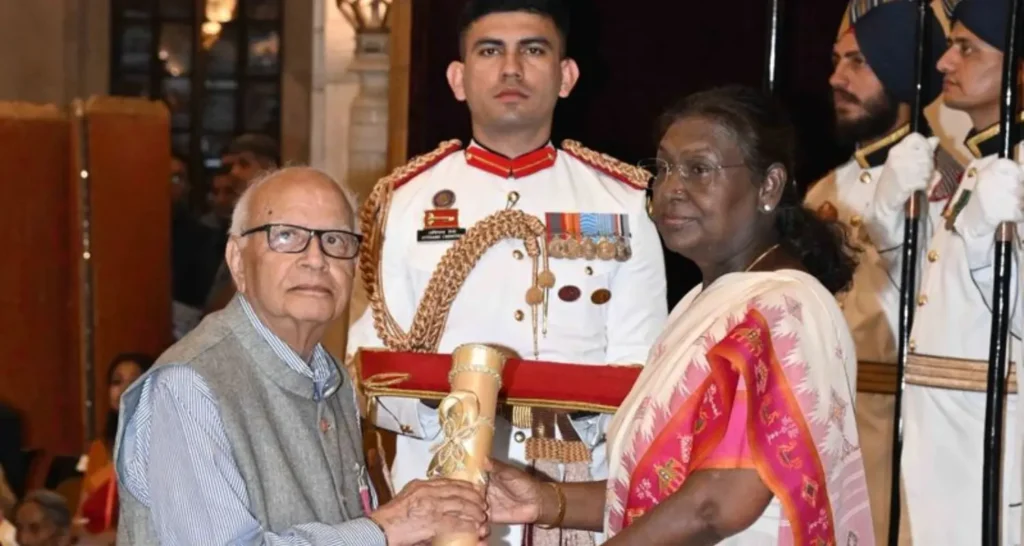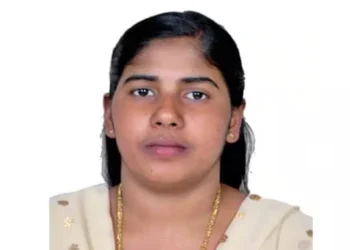Dr. Surinder Kumar Vasal, an eminent Indian agricultural scientist, has transformed the global landscape of plant breeding and nutrition through his groundbreaking work in the development of Quality Protein Maize (QPM). His innovative approach to improving the nutritional value of maize has not only revolutionized food security in several parts of the world but has also earned him a prestigious place in the history of agricultural science.
Key Information
| Field | Details |
| Full Name | Dr. Surinder Kumar Vasal |
| Date of Birth | April 12, 1938 |
| Place of Birth | Amritsar, Punjab, India |
| Nationality | Indian |
| Ethnicity | Indian (Punjabi) |
| Parents | His father was a farmer; his mother’s influence is not widely documented |
| Siblings | Not much information is available about siblings |
| Marital Status | Not publicly disclosed |
| Education | B.Sc. from Khalsa College, Amritsar (1957), M.Sc. in Plant Breeding (1959), Ph.D. in Genetics and Plant Breeding from IARI, New Delhi (1966) |
| Languages Spoken | English, Punjabi |
| Professional Titles | Plant Breeder, Agricultural Scientist, Geneticist |
| Field of Expertise | Agricultural Science, Plant Breeding, Crop Improvement |
| Notable Contributions | Development of Quality Protein Maize (QPM), work in the genetic improvement of staple crops |
| Awards and Honors | World Food Prize (2000), Padma Shri (2025), Fellow of the National Academy of Agricultural Sciences (2001) |
| Key Collaborations | Dr. Evangelina Villegas (partner in developing QPM) |
| Career Highlights | Germplasm Coordinator at CIMMYT, Director for Lowland Tropical Maize Program, Member of CIMMYT’s senior management team |
| Current Affiliation | Retired from CIMMYT, continues to contribute to global agricultural projects |
| Research Focus | Focused on maize genetics, agricultural productivity, and nutritional enhancement of crops |
| Hobbies and Interests | Enjoys reading, traveling, and mentoring young agricultural scientists |
| Impact | His work on QPM has impacted millions of people globally, improving food security and nutrition |
| Legacy | Regarded as a pioneer in plant breeding, especially for the improvement of staple crops like maize |
| Personal Traits | Known for humility, passion for research, and dedication to addressing global hunger |
Early Life and Education
Born on April 12, 1938, in Amritsar, Punjab, India, Dr. Vasal was drawn to the world of agriculture from a young age. Growing up in a region where agriculture played a central role in daily life, he developed a deep appreciation for the importance of crop improvement. He pursued his B.Sc. from Khalsa College in Amritsar (1957), followed by an M.Sc. in Plant Breeding and Genetics from Kanpur Agricultural College (1959). His insatiable curiosity led him to the Indian Agricultural Research Institute (IARI) in New Delhi, where he earned his Ph.D. in Genetics and Plant Breeding in 1966.
Professional Journey
After completing his studies, Dr. Vasal joined the International Maize and Wheat Improvement Center (CIMMYT) in Mexico, a global hub for crop research. His tenure at CIMMYT proved to be a pivotal turning point in his career. It was here that he embarked on his collaboration with Dr. Evangelina Villegas, a biochemist, which led to the revolutionary development of Quality Protein Maize (QPM).
QPM is a genetically improved variety of maize that contains higher levels of essential amino acids like lysine and tryptophan. These amino acids, which are often deficient in staple foods, are vital for human health, particularly for children and those in developing countries. The breakthrough provided a sustainable solution to combat malnutrition in maize-dependent regions, contributing significantly to public health improvements in parts of Africa, Asia, and Latin America.
The Breakthrough: Quality Protein Maize
The significance of QPM cannot be overstated. While maize has been a staple food for millions across the world, it has traditionally lacked adequate levels of essential amino acids, which are crucial for the proper growth and development of the human body. Dr. Vasal’s work at CIMMYT, alongside his collaborator Dr. Villegas, led to the creation of maize varieties that could meet the nutritional needs of populations reliant on maize as a primary food source.
Developed in the 1970s, QPM is a result of decades of research and dedication. Through careful breeding techniques, Dr. Vasal and his team improved the genetic makeup of maize to enhance its protein quality. This innovation has impacted millions globally by not only improving food security but also reducing the risk of protein malnutrition in regions where maize is a primary dietary staple.
Awards and Honors
- World Food Prize (2000): Awarded jointly with Dr. Villegas for their development of QPM.
- Padma Shri (2025): Conferred by the Government of India for his contributions to agriculture in the fields of science and engineering.
- Elected Fellow of the National Academy of Agricultural Sciences (2001).
Legacy and Continuing Impact
Dr. Surinder Kumar Vasal’s legacy as a plant breeder and agricultural innovator is far-reaching. The development of Quality Protein Maize has impacted food security on a global scale, particularly in regions where maize is a key staple. Beyond his scientific contributions, Dr. Vasal’s work has inspired a generation of agricultural scientists and researchers to focus on improving crop quality, nutrition, and sustainability.
His story is a testament to the power of scientific innovation in addressing some of the world’s most pressing challenges. Today, his work continues to influence the fields of agriculture, food security, and public health, and his contributions remain a beacon of hope for millions who rely on maize for sustenance.
Dr. Vasal’s career is a shining example of how science can serve humanity, proving that the solutions to some of the world’s most complex problems often lie in nature, waiting to be discovered and nurtured by those dedicated to making a difference.
Unknown Facts About Dr. Surinder Kumar Vasal
1. A Passion for Teaching
While Dr. Vasal is widely known for his groundbreaking work in plant breeding, what is lesser known is his passion for teaching. Throughout his career, he has mentored countless young agricultural scientists, especially those in developing countries. His mentorship has left a lasting impact on the next generation of plant breeders.
2. Humble Beginnings
Dr. Vasal grew up in a modest farming family in Amritsar, Punjab. His early exposure to agriculture instilled in him a deep appreciation for crop improvement and agricultural sustainability. Despite his international acclaim, he has always remained humble about his beginnings and credits much of his success to his early life experiences in rural India.
3. Self-Taught in Genetics
While he had formal training in plant breeding and genetics, Dr. Vasal was largely self-taught in many aspects of plant genetics, particularly in the field of protein improvement. His innate curiosity and thirst for knowledge led him to explore various aspects of genetics that were vital for his work in improving maize.
4. Life-Long Commitment to Food Security
Beyond the recognition and awards, Dr. Vasal’s work was driven by a personal commitment to global food security. His primary motivation in developing Quality Protein Maize (QPM) was to improve nutrition and combat malnutrition in regions heavily dependent on maize as a food staple, particularly in sub-Saharan Africa and South Asia.
5. A Global Researcher
Although Dr. Vasal is associated with the International Maize and Wheat Improvement Center (CIMMYT), he has worked in multiple continents. His research efforts have spanned across Asia, Africa, and Latin America, where his maize varieties were adopted to improve local nutrition and food security.
6. Foresight in Crop Biotechnology
Dr. Vasal has been ahead of his time in recognizing the potential of biotechnology in crop breeding. He foresaw the crucial role of genetic engineering in improving food crops, especially in terms of their nutritional value, long before genetically modified (GM) crops became a global conversation.
7. Life Beyond Maize
Though Dr. Vasal’s fame rests on his work with maize, his research interests extend beyond just one crop. He has also worked on the genetic improvement of other staples like wheat and rice to enhance their nutritional profiles and overall agricultural productivity.
8. A Quiet Advocate for Sustainable Agriculture
Dr. Vasal has always advocated for sustainable agricultural practices, even when this was not a mainstream topic of discussion. He has consistently stressed the importance of using scientific advancements in ways that promote environmental sustainability and the long-term health of ecosystems.
9. An Enthusiast of Traditional Knowledge
Despite his modern scientific approach, Dr. Vasal has expressed deep respect for traditional agricultural practices and indigenous knowledge. He believes that scientific research must be complemented by traditional wisdom, particularly when addressing the unique agricultural needs of different regions.
10. Low-Key Public Life
Dr. Vasal is a private individual who prefers to keep his personal life out of the public eye. Despite his immense contributions to science, he has always chosen to stay away from the spotlight, preferring to focus his energy on his work and research rather than on personal fame.
11. Mentoring Beyond Science
In addition to his work in plant genetics, Dr. Vasal has been a mentor in broader life skills for young scientists. He is known for advising on resilience, patience, and perseverance, qualities that have served him well in his long and successful career.
Read more biographies and success stories of business leaders, celebrities, healthcare professionals etc. at Leader Biography.







